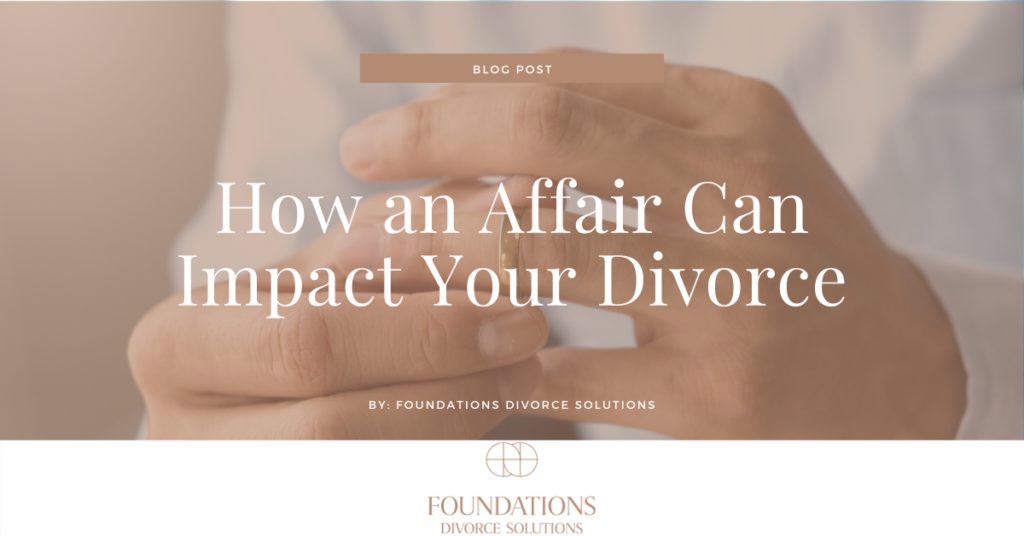Infidelity in a marriage is a deep betrayal. It’s the breaking of promised vows and while acts of indiscretion don’t necessarily always lead to divorce, it can be hard to get past the breaking of trust.
But how does infidelity impact a divorce? Foundations Divorce Solutions is here with some answers to this question that might just surprise you.
Infidelity in a marriage isn’t necessarily grounds for divorce…
Cheating doesn’t always necessitate a divorce—indeed, some relationships do survive infidelity. Studies show that about 20 percent of married couples whose relationship foundations are shaken by infidelity choose to stay together and move past the cheating behavior. Regardless of whether a couple decides to pursue a divorce after the fact, Washington state is a no-fault divorce state.
This means that you don’t need to have a reason to file for divorce other than they simply don’t want to be married any longer. Is no-fault divorce a good thing—in general, yes. It’s fundamentally more complicated to have to prove fault in order to obtain a divorce. But this also means that the court will likely not take acts of infidelity into account during the settlement process.
How cheating can influence your divorce settlement agreement.
When one partner is unfaithful, it can take a huge emotional toll on the other. Depending on the circumstances surrounding an affair, money may have been spent to maintain the affair. From dinners to gifts, hotel rooms to “business” trips, an affair can cost a pretty penny.
This can certainly be factored in when it comes time to negotiate your settlement and may be considered when property is being divided. Another major factor is remorse. If the cheating party feels guilty, they may be more agreeable during the settlement process because they feel responsible for the end of the marriage.
Can an affair impact a child custody arrangement?
There are very few instances that an affair has an influence on the court’s decision surrounding custody agreements. Falling in line with no-fault divorce law, the court will generally not consider affairs when dealing with custody arrangements.
The exception to this is whether that infidelity has impacted parental duties. If your soon-to-be-ex is skipping out on important life events to shack up with their new beau, it might not bode well in the eyes of the judge during custody discussions. If the affair causes a substantial change in their behavior that leads to neglect, questionable financial decisions, or endangerment.
While infidelity is a huge breach of marital trust and an event that usually comes with big emotional consequences, it doesn’t play as large of a role as you might expect in divorce proceedings. It may not be worth it to hire an investigator to uncover your spouse’s affair unless all you’re seeking is the truth.
In the long run, you’ll have to demonstrate financial loss or a significant and concerning change in your ex’s behavior for the court to take the consequences of your partner’s infidelity into account during your divorce proceedings.




